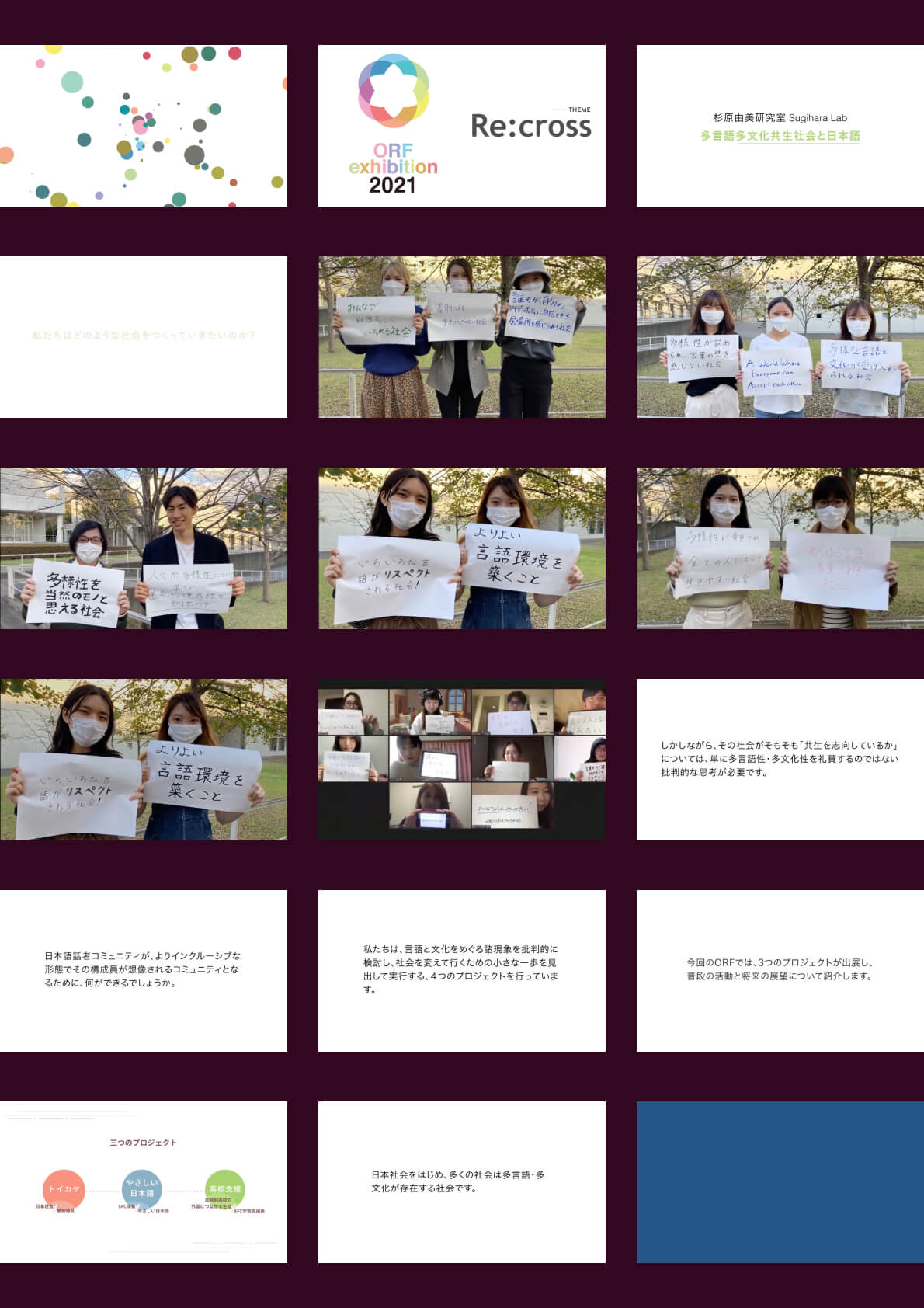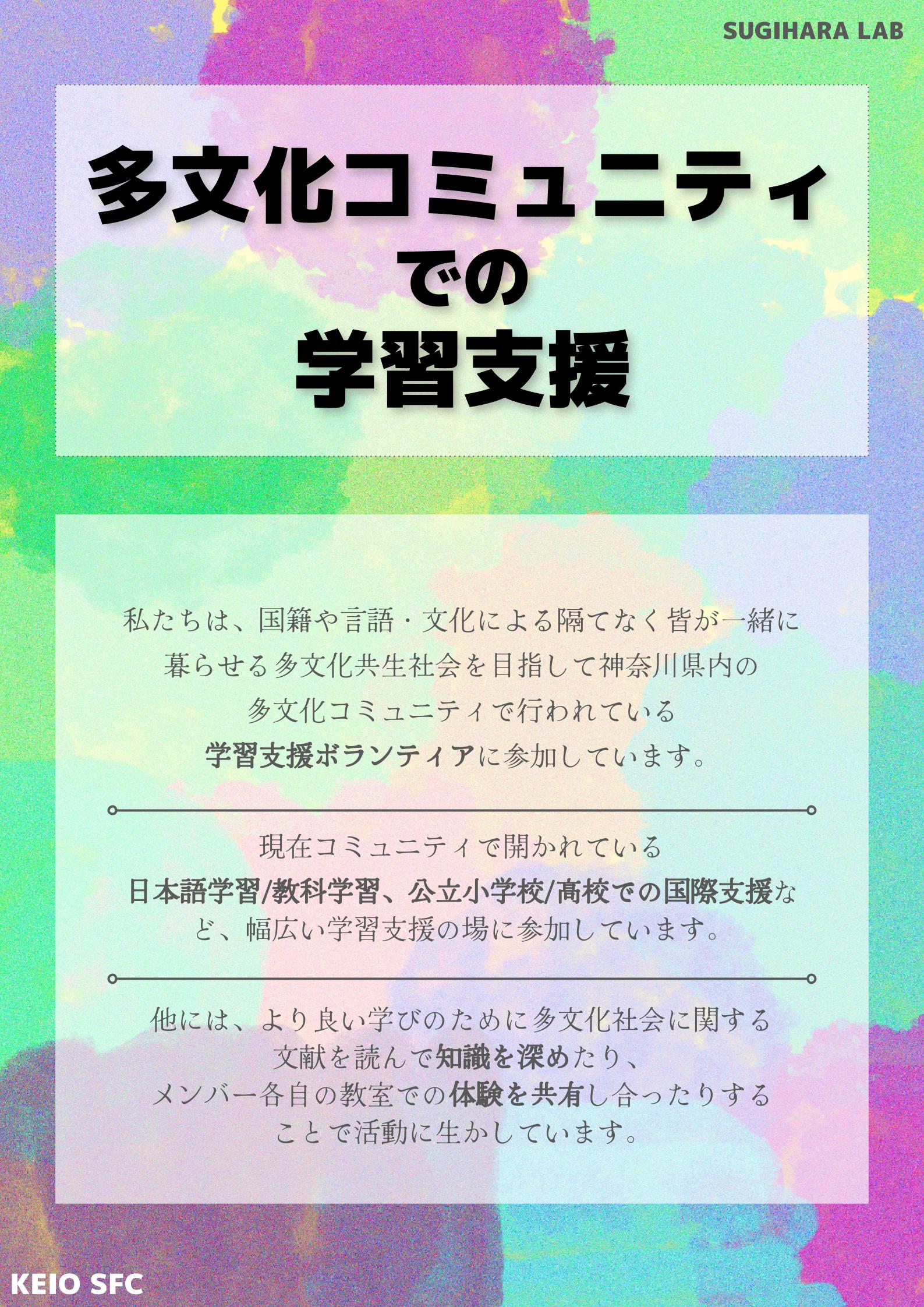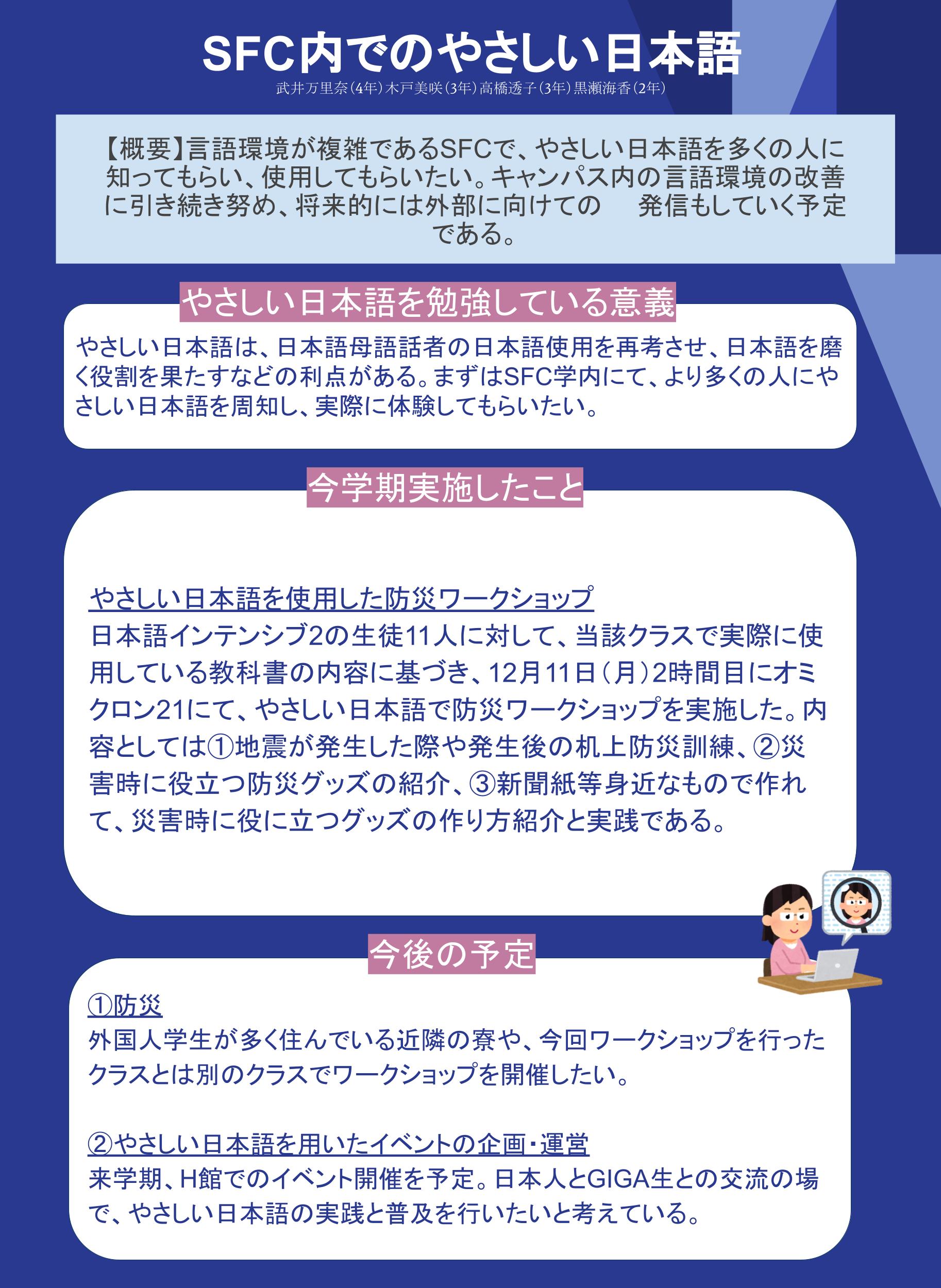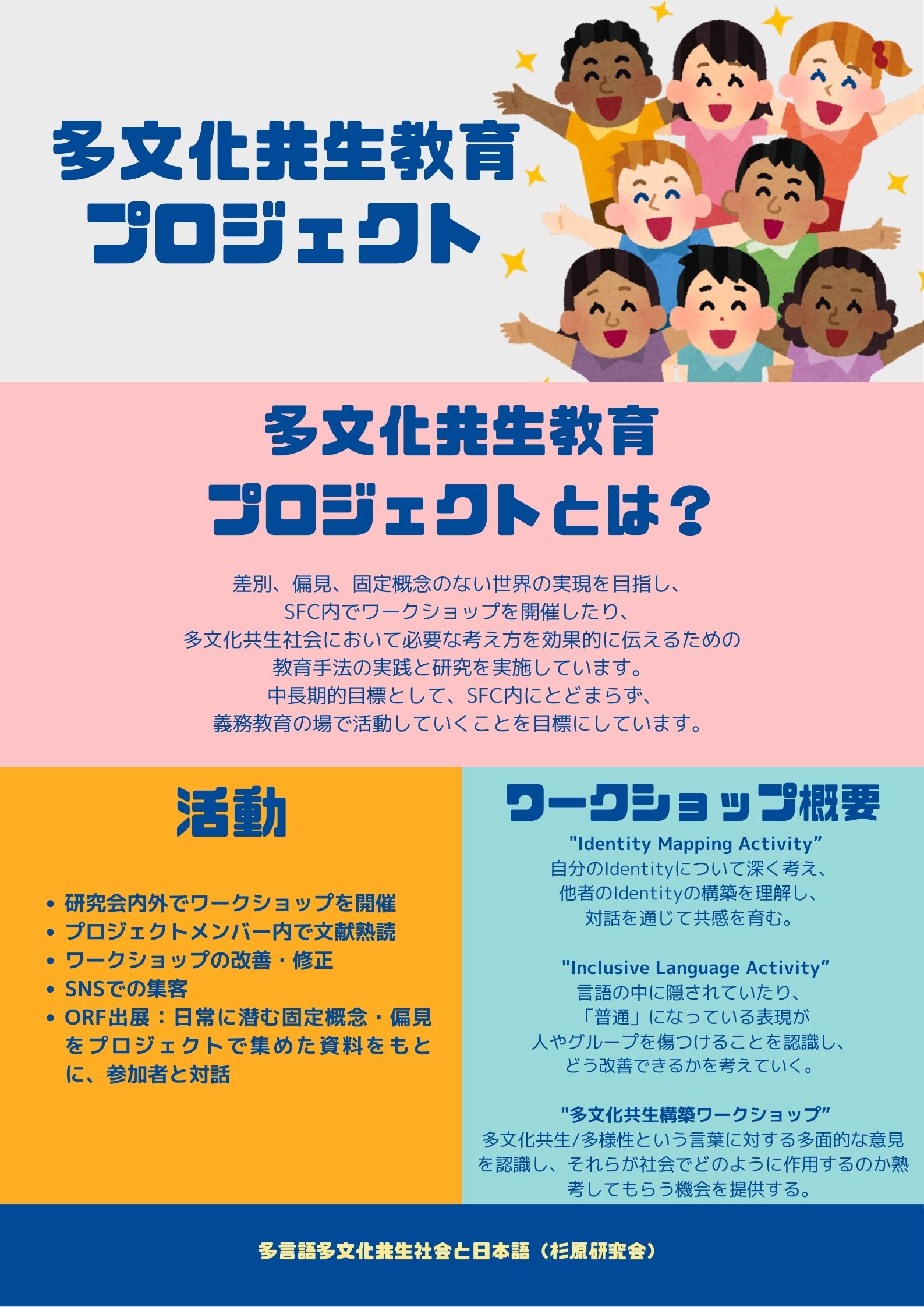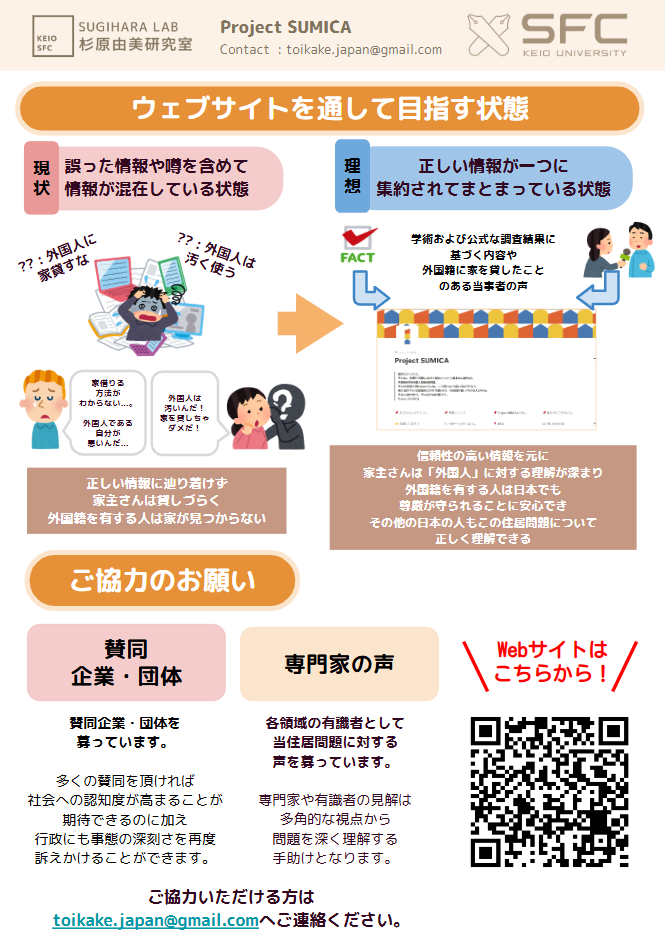私たちは
どのような社会を
つくっていきたいのか?
文化的差異をめぐる力関係を
批判的に検討し、
多様な言語と文化が共生する社会を志向する。
多言語多文化共生社会と日本語
日本社会をはじめ、多くの社会は多言語・多文化が存在する社会です。しかしながら、その社会がそもそも「共生を志向しているか」については、単に多言語性・多文化性を礼賛するのではない批判的な思考が必要です。さらに、社会が共生を志向するための個々人の行動も欠かせません。
日本語についても、その使用者はいわゆる「日本人」を一面的に想像しがちですが、その当たり前を疑ってみる必要があります。日本語使用者には、アイヌ語や琉球諸語を受け継ごうという人々、世代を超えて越境移動している在日コリアン・日系ラテンアメリカ出身者等、さらに多様な言語文化背景の日本語使用者や学習者がいます。日本語話者コミュニティが、よりインクルーシブな形態でその構成員が想像されるコミュニティとなるために、何ができるでしょうか。
私たちは、こうした言語と文化、越境移動する人々と社会的マジョリティをめぐる諸現象を考える際に、批判的に検討し、社会を変えて行くための小さな一歩を見出して実行することを重要視しています。
Intercultural communication –
A critical perspective
Culture, a widely used but perhaps little understood term, is in fact influenced by economic and political issues which create unequal relations of power between peoples. Since dominant discourses often lack comprehensive understanding of the politics and power relations behind culture and language, a hegemonic relationship can emerge between people who engage in intercultural communication as a result of cultural differences being over- or under-emphasized. Therefore, it is imperative that we understand the politics at work in an intercultural context and develop critical literacy.


